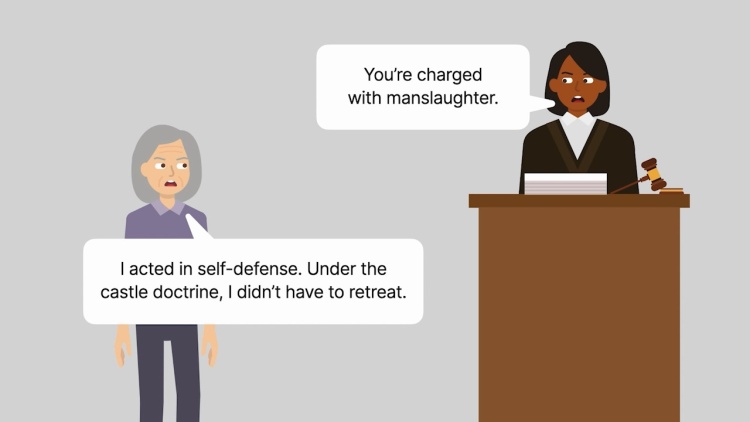State v. Gartland
New Jersey Supreme Court
694 A.2d 564, 149 N.J. 456 (1997)
- Written by Samantha Arena, JD
Facts
Ellen Gartland (defendant) suffered a long history of abuse from her husband, John Gartland. On February 8, 1993, the Gartlands were arguing in their home when Ellen left the room and went upstairs to her bedroom. The Gartlands had slept in separate bedrooms for over 10 years. John usually left Ellen alone in her room, but this time he followed her into the bedroom. John moved toward Ellen, threatening to hit her. Ellen pointed a shotgun at John, telling him to stop. John threatened to kill Ellen and charged at her. Ellen shot John, killing him. At trial, the court provided the jury with a model jury charge on self-defense, instructing the jury that Ellen could not assert self-defense if she knew that she could avoid the necessity of using deadly force by retreating from the house, provided that she could do so with complete safety. Ellen objected to the charge, because the court did not instruct the jury that Ellen had no duty to retreat if her bedroom constituted a separate dwelling into which her husband had intruded. The jury convicted Ellen of reckless manslaughter. Ellen appealed but died while the appeal was pending. The Supreme Court of New Jersey heard the appeal, finding that the case presented issues that were likely to recur.
Rule of Law
Issue
Holding and Reasoning (Per curiam)
What to do next…
Here's why 907,000 law students have relied on our case briefs:
- Written by law professors and practitioners, not other law students. 47,100 briefs, keyed to 996 casebooks. Top-notch customer support.
- The right amount of information, includes the facts, issues, rule of law, holding and reasoning, and any concurrences and dissents.
- Access in your classes, works on your mobile and tablet. Massive library of related video lessons and high quality multiple-choice questions.
- Easy to use, uniform format for every case brief. Written in plain English, not in legalese. Our briefs summarize and simplify; they don’t just repeat the court’s language.





